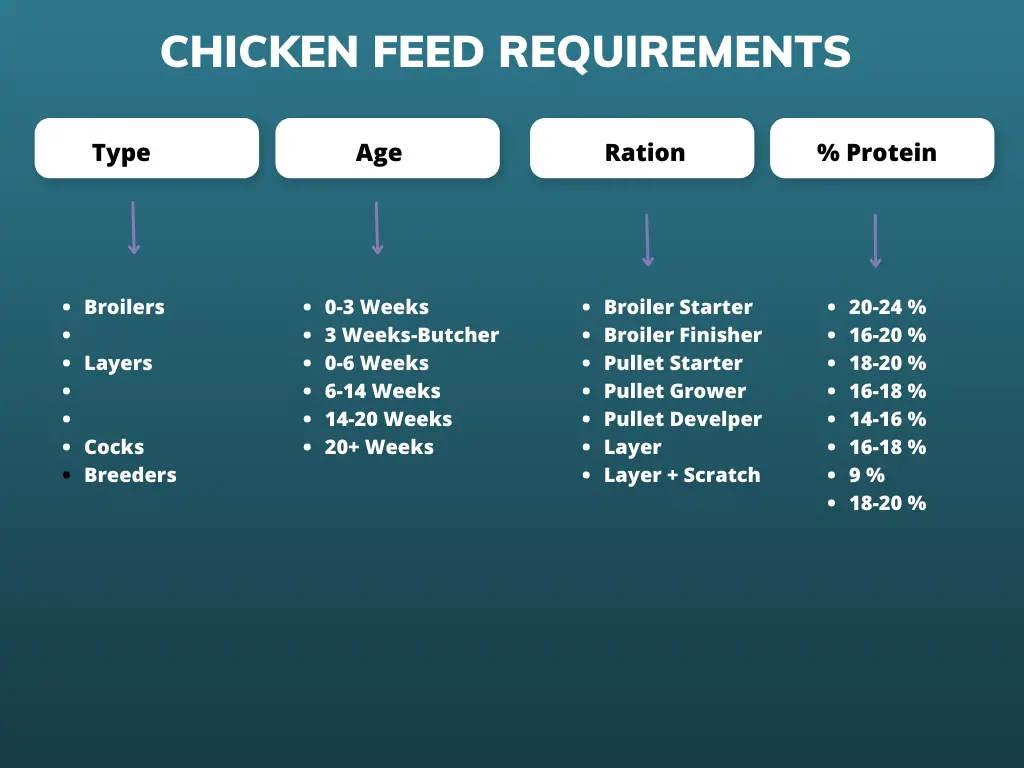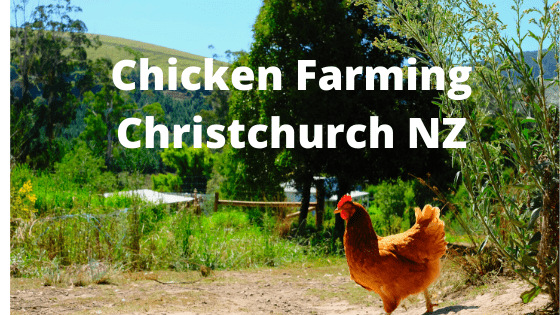As a general rule, your hens should be in a place where they can:
- Lay eggs and roost at night.
- Stay dry and clean during the day.
- Have protection from the weather when necessary; such as extreme heat or cold, wind, rain, storms, etc.
- A good chicken coop design provides your chickens with:
- Protection from predators – whether they be four-legged or two.
- Safety and shelter while you’re not home to care for them.
- If possible, the chicken coop should:
Be built near your house so that it’s easy to tend to without having to walk too far in bad weather.
8 STEPS – How To Start A Chicken Farm In Christchurch, New Zealand?
How to Start a Chicken Farm – The appetite of chicken among New Zealanders is at an all-time high. Also, in New Zealand, chicken has become a cut-price protein, and it is more consumed than any other meat. In the past decade, the yearly intake has increased by about 8kg per person and rising.
This rise in the consumption of chicken has inadvertently made chicken farming a lot more lucrative. This has helped to explain why there are so many opportunities in the industry. Also, it is good news for small and medium-scale chicken farmers because they will get to profit from this rising demand.
12 Ways to Make Money by Chicken Farming—Extensive Guidelines for Chicken Farmers
The numbers speak for themselves, although looking at it at first, it might seem that large-scale farmers dominate the industry. Despite that, small and medium-scale chicken farmers can still tap into the success of this industry with a hitch.
However, running a chicken farm requires one to not only have the agricultural know-how but also, must be able to think like a business person. Plus, you must be able to choose to focus on establishing your brand, know how to raise chickens and how to build a business.
Types of Chicken Farming
Contrary to popular misconception, chickens in New Zealand are not housed in cages. In New Zealand, there are two major types of chicken farming, and they are as follows:
Barn
In this system, chickens are raised in large open poultry houses called sheds. A shed can be up about 15 meters wild and 150 meters holding approximately 49,000 chickens. The shed should have a feeding and watering system as well as a litter. Also, the shed should be equipped with an automated temperature regulator and ventilation controls.
When using this system, careful attention should be given to the regulations relating to densities in the code of welfare for chickens. Also, beak trimming is allowed to limit cannibalism and feather pecking.
Free-range
This system offers almost the same conditions as the barn system except for the access the chickens will have to outdoor ranging areas. Welfare groups support this system, and it allows the chicken maximum access to their natural behavioral instincts.

In this system, the chickens are free to roam during the day. However, they are restricted at night to protect them from the weather and predators. Also, in this system, beak trimming is at a day old is not adopted. Finally, limited stockings density per shed is required to allow the chickens’ freedom of movement.
What You Need To Know To Start A Chicken Farm In New Zealand
Key requirements
All chicken farmers in New Zealand have essential requirements they must follow. These include:
- Using only approved medicine on the chicken
- Complying with the animal welfare requirements
- Recording how you manage the health of your birds
- Operating under WFHS (whole flock health scheme)
- Your feeds must meet the requirement of the ACVM (Agricultural Compound and Veterinary Medicines Act
- Taking part in a processor’s supplier approval program
- Legislation
All chicken farmers in New Zealand must comply with the following legislation. These are in place to help ensure you produce safe and suitable food: we have the Animal Product Acts of 1999 and the Agricultural Compound and Veterinary Medicines Act of 1997.
You can find these Acts on the New Zealand legislation website.
Vaccinations and Medicine
As a chicken farmer in New Zealand, you must ensure any veterinary medicine you use comply with the ACVM Act. The veterinary medicines to be used include Vaccines, Antibiotics, Anthelmintics, and Anticoccidials.
The ACVM Act is there to control the agricultural compounds and veterinary medicines used with animals. Also, it serves as a companion measure to other pieces of legislation. The act states that chicken farmers must:
- Authorized by a vet to use the product and follow the vet’s instructions if the product is a restricted veterinary medicine.
- Comply with conditions of registration for the use of each product.
- Read the labels of the medicine carefully and follow their directions for use.
- Report any adverse event to the product registrant
- Feed
In New Zealand, poultry feed is considered to be an agricultural compound under the ACVM Act. Also, all agricultural compounds must be authorized. At the same time, poultry feed is usually authorized before registration, but still, chicken farmers who aim to produce their feeds must first make sure that their feed is fit for the purpose. Then, you don’t want to misrepresent their product as anything other than animal nutritional. Once those are done, make sure you comply with manufacturing requirements, as well as follow a documented system
Biosecurity Manual
This manual for New Zealand chicken growers sets out the recommended standards for chicken meat production. Also, the manual helps to ensure that birds are healthy and safe to eat. It also serves as a guide for broiler production, including shed construction, vermin, and wild bird control, shed entry, water supply, visitor restrictions, and harvest and cleanout.
The manual is a must-read for new chicken farmers.
Steps To Starting A Chicken Farm
Follow these step-by-step processes for starting a new chicken farm.
- Have your investment
Chicken farm requires investment. You can either try and raise the money yourself or take a bank loan.
- Select farm location
Choosing a good farm location is a very important aspect of starting your chicken farm. Endeavor to select a location that has all the required facilities and is favorable for your business.
- Construct infrastructure
The next step is to construct the infrastructure according to the system you intend to adopt.
- Get the required equipment
After constructing the infrastructure, the next step is to get all the equipment needed for your chicken farm.
- Labour
Depending on the number of birds, you can decide to manage the farm yourself or hire help.
- Purchasing chicks
After everything has been in place, it is time to buy the chicks from a trusted breeder and start caring for them.
- Feeding
This is equally an important part of chicken farming, so as your chicks can grow, you have to spend a lot on feeding them.
To Wrap It Up
Before starting the chicken farm, it is advisable to learn more about the business and to visit other farms. However, the guideline in this article will help you get the business up and running.
Start your farm, gather experience, and gradually grow your business.


